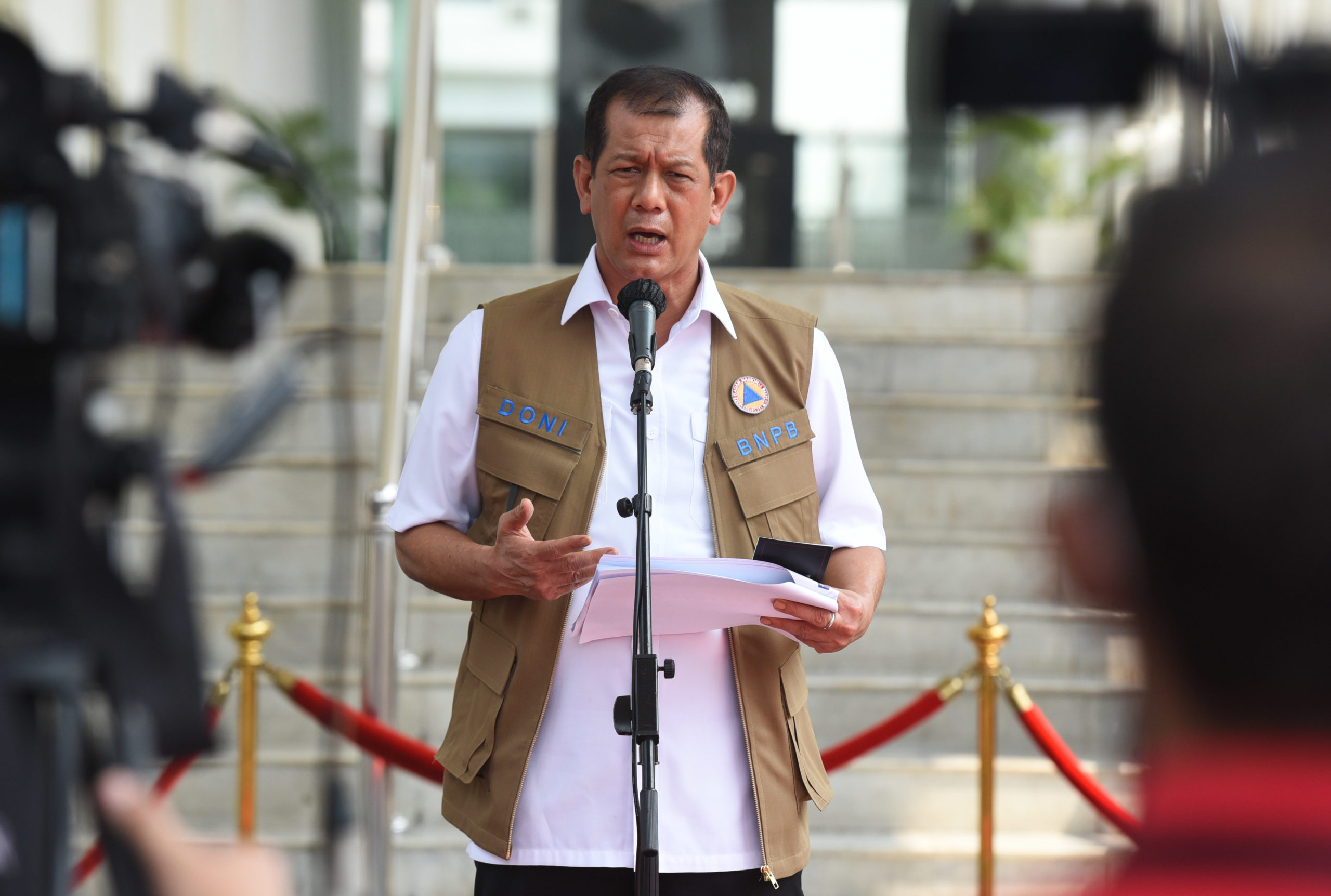Gov’t to Prioritize 57 Regencies/Cities With High-Risk of COVID-19 Transmission

Chairperson of the COVID-19 Task Force gives a press statement after a limited meeting at the Presidential Palace, Jakarta, Monday (29/6). (Photo by: Rahmat/PR).
Chairperson of the COVID-19 Task Force Doni Monardo said that President Joko “Jokowi” Widodo has ordered the task force to prioritize and to support 57 regencies/cities with high-risk of COVID-19 transmission.
“As you may be aware, the task force has rolled out zoning systems. There are regions with high risks, moderate risks, low risks. There are also those that are not affected as well as areas that have zero cases in the past one month,” Doni said in a press statement at the Presidential Palace, Jakarta, Monday (29/6).
According to Doni, a regency or a city labeled as a critical risk area is categorized as a black zone, the one with a severe risk is a red zone, the one with quite a severe risk is a yellow zone, the one with a moderate risk is a blue zone and one with a low risk is a green zone.
The President, he added, has also ordered the task force to involve all components, particularly personnel of the Indonesian National Defense Forces (TNI), the Indonesian National Police (Polri) to curb the rate of new cases.
Prominent figures in the regions, be it religious leaders, community leaders, or cultural figures, as well as anthropologists have also been invited to join hands, he added.
That way, according to Doni, the Government can have access to information on the characteristics and potential of each region.
Regarding the zoning system, Doni added, it depends on the level of mutual concern and awareness of the people.
“If we fail to maintain the existing zone, for example, a green zone can turn to a yellow zone, and even an orange or a red zone in a short time,” he said, adding that the number of red zone regions has now dropped from 108 on 21 June to 57 during the course of three weeks thanks to active participation of the public in implementing health protocols.
“We hope the public in each region will always be involved in collective efforts to help stop the spread of the virus,” he said. (FID/EN)
Translator: Muhardi
Reviewed by: M. Ersan Pamungkas








